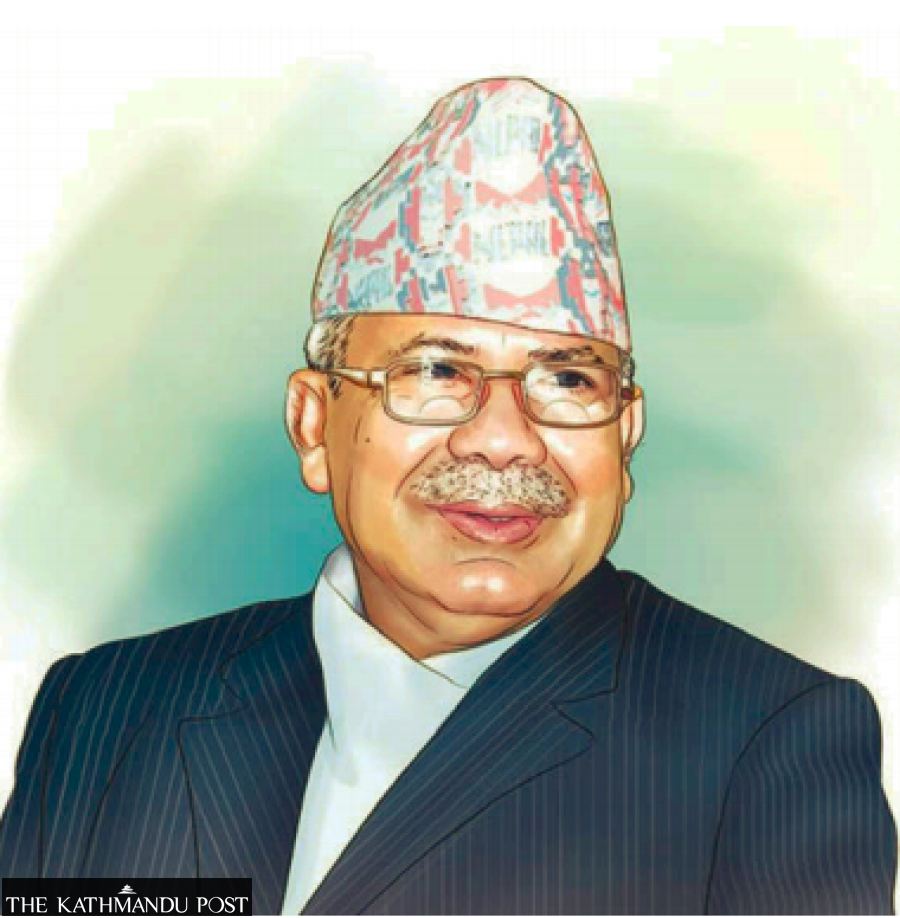Politics
Congress lays claim to Bagmati chief minister seat
Coalition partners warn breach of agreement with CPN (Unified Socialist) could affect political alignment at the centre itself.
Tika R Pradhan
The newly-formed CPN (Unified Socialist), a splinter of the CPN-UML, was considering not joining the government when the coalition partners were bargaining hard for ‘powerful’ ministries days before the Cabinet expansion. The party wanted for itself the defence ministry, which other coalition partners were also staking claim to.
However, the party agreed to give up its demand for the defence ministry after Prime Minister Sher Bahadur Deuba and one of the key members of the coalition CPN (Maoist Centre) chair Pushpa Kamal Dahal agreed to support the CPN (Unified Socialist) to help elect its leaders to chief minister positions in Province 1 and Bagmati Province.
“We agreed to join the government with whatever ministries they had offered us because the coalition agreed to support our candidates for chief ministers in Province 1 and Bagmati,” said Deputy General Secretary Jagannath Khatiwada, who is also the spokesperson for the CPN (Unified Socialist).
But the Nepali Congress provincial committee of Bagmati has been opposing the agreement of the coalition partners and laid claim to the chief ministerial position currently held by Asta Laxmi Shakya of CPN-UML. Shakya will go for a floor test in the next meeting of the provincial assembly scheduled for October 21 and she has no majority to survive.
According to Congress leaders, Prime Minister Deuba wanted to make Indra Bahadur Baniya, the leader of the Nepali Congress provincial parliamentary party, as the new chief minister for the first half term and hand over the second half term to a CPN (Unified Socialist) candidate. They claimed that the elevation of Baniya to chief minister would help Deuba during the upcoming 14th General Convention of the party scheduled for November 25-29.
However, CPN (Unified Socialist) chief minister candidate for Bagmati Rajendra Pandey said the prime minister has already asked him to take the post.
But a meeting of the Nepali Congress parliamentary party on Sunday decided to take initiatives for forming a new government in Bagmati Province under its own leadership. Parliamentary party leader Baniya has been entrusted to make necessary efforts for forming a government with the support of the CPN (Maoist Centre) and the CPN (Unified Socialist). The meeting also decided to consult the leaders of the parties at the central level for forming the new government in Bagmati.
Reacting to the development, a CPN (Maoist Centre) leader in the province has warned that the Congress’ going back on its promise could have consequences.
“Nepali Congress is trying to create problems in the coalition by laying claim to Bagmati chief minister,” said Ratna Dhakal, a Bagmati provincial assembly member of the CPN (Maoist Centre). “This could even affect the existing political alignment at the centre if the Nepali Congress went back on its agreement to support the Unified Socialist’s candidates for chief minister in Province 1 and Bagmati.”
Baniya, the Nepali Congress parliamentary party leader of Bagmati provincial assembly, also claimed that his party will lay claim to Bagmati chief minister and doing so is natural.
He, however, said the Congress’ Bagmati provincial parliamentary party has not received any information about the agreement of the coalition partners but added that he would obey any decision of the party leadership.
“We have already informed our party president and the prime minister that we have laid claim to the post of chief minister of Bagmati,” Baniya told the Post. “Prime Minister Deuba has informed us that he will discuss it.”
“I think we will settle who will lead the provincial government before the next meeting of the provincial assembly, which is scheduled for October 21.”
Leaders of the CPN (Maoist Centre), however, said as the second largest party in the provincial assembly they had the right to claim the position of chief minister but surrendered their right to respect the agreement among the coalition partners.
“Actually we are the rightful candidate for Bagmati chief minister as the second largest party but we didn’t lay claim to the position as per the agreement made by the coalition partners,” said Dhakal, the Bagmati provincial assembly member of CPN (Maoist Centre). “There must be some hidden interests behind the claim of Nepali Congress.”
The 110-member provincial assembly currently has 109 members after the death of Pashupati Chaulagain of the UML and now the UML has 43 members, Maoist Centre 23, Nepali Congress 22, CPN (Unified Socialist) 13, Bibeksheel Sajha 3, Nepal Majdoor Kisan Party 2, Rastriya Prajatantra Party 2 and one independent member.
But in Province 1, Nepali Congress is ready to accept Rajendra Rai of the CPN (Unified Socialist) for new chief minister after Congress’ parliamentary party leader Rajiv Koirala was informed by his party about the agreement between the coalition partners to support Unified Socialist’s candidates in Province 1 and Bagmati Province.
“I was informed by the party leadership about the agreement therefore we have already decided to support Rajendra ji but Chief Minister Bhim Acharya has been trying to delay a floor test,” said Koirala. “The next meeting of the assembly has been postponed until October 22.”
To appease the coalition partners, Lumbini Chief Minister Kul Prasad KC on Sunday formed the largest provincial cabinet with 17 ministers by inducting 10 more ministers.
Not only the leaders of CPN (Maoist Centre) but those from the CPN (Unified Socialist) have also suspected that the activities of Nepali Congress leaders in Bagmati Province could seriously affect the ruling coalition.
“Such activities of the Nepali Congress leaders including Indra Baniya could seriously affect the unity of the coalition and the prime minister must control it at the earliest,” said Khatiwada, the spokesperson for CPN (Unified Socialist). “I don’t think the prime minister could afford to go against the agreement of coalition partners.”




 17.12°C Kathmandu
17.12°C Kathmandu















